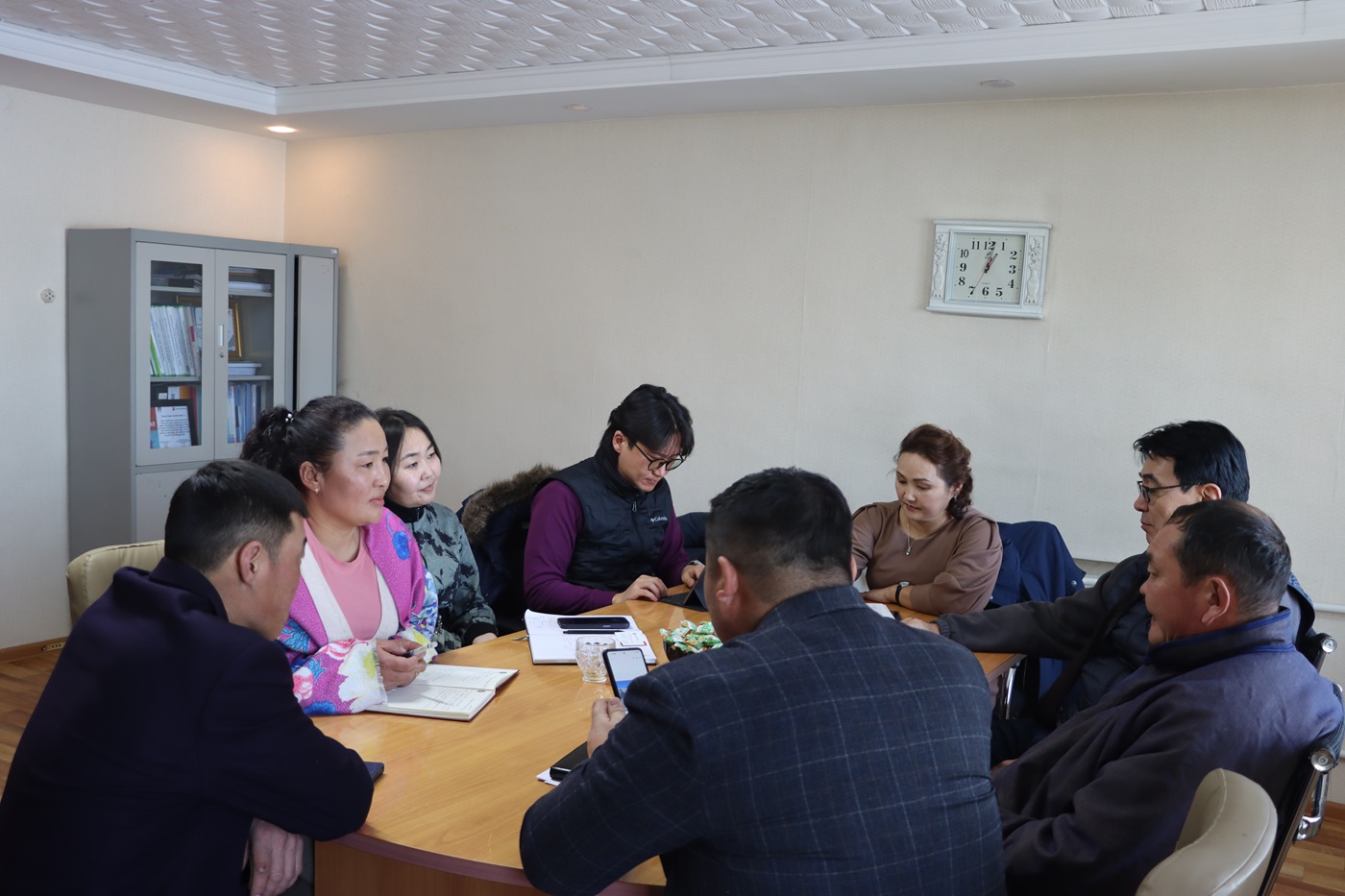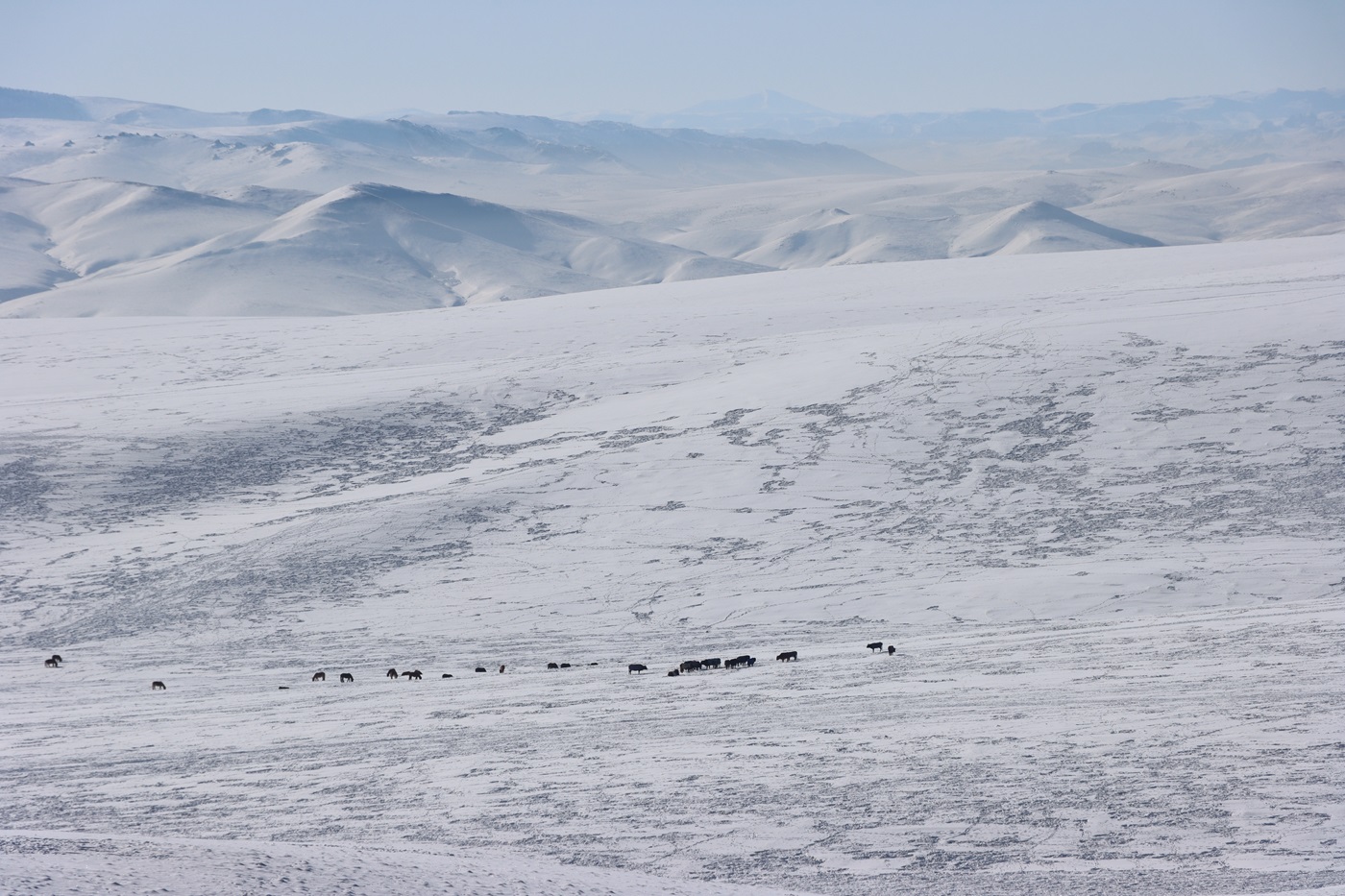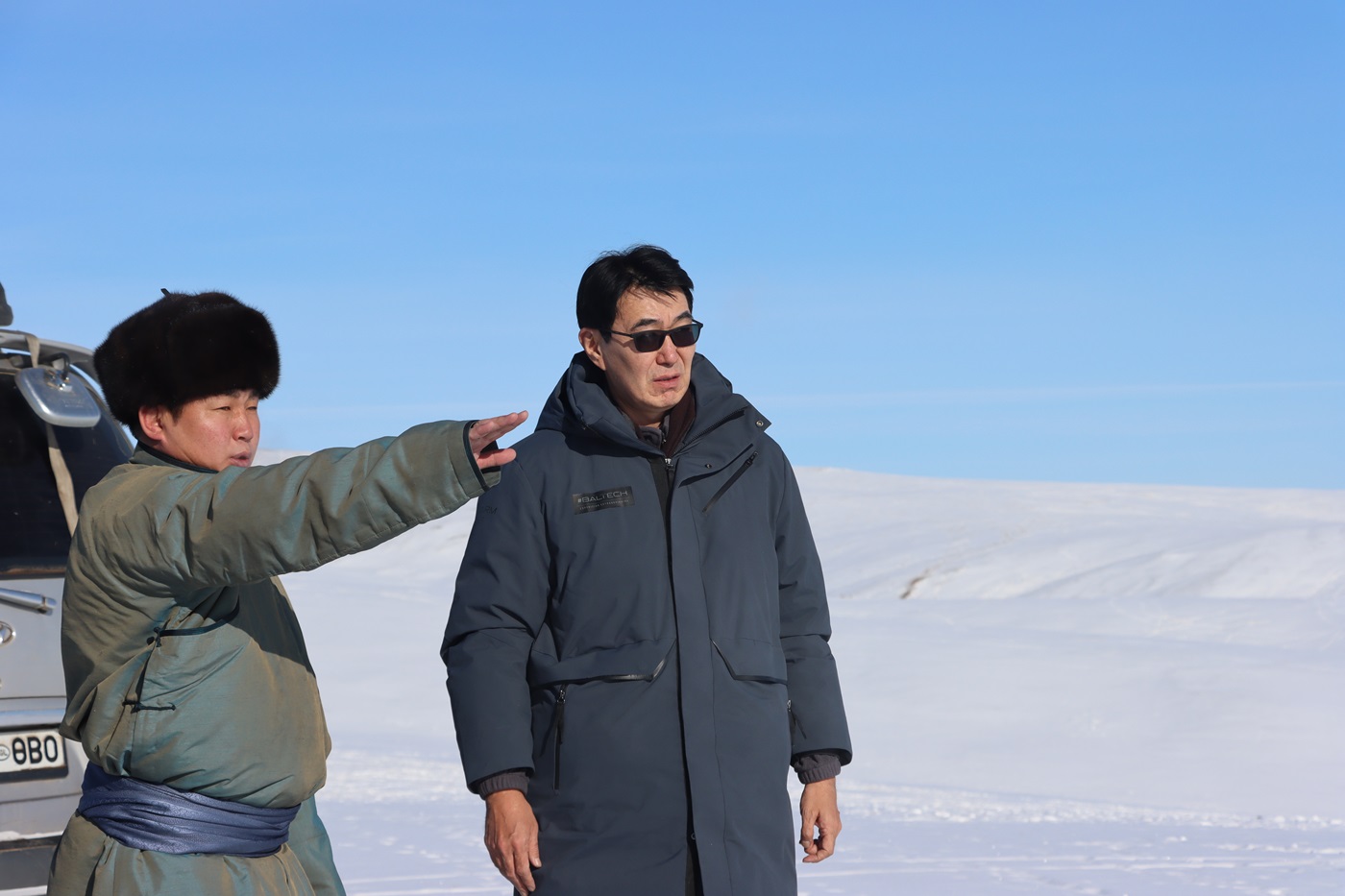Save the Children delivers humanitarian aid to herders affected by the Dzud
–Herders will receive cash and fodder for livestock–
Mongolia experienced drought in summer 2023 which led to poor pastures, malnourished livestock, and insufficient stock of hay and fodder to be consumed in winter and spring. Extreme weather conditions, cold and heavy snowfalls in winter 2023-2024 exacerbate the situation of herders. The National Emergency Management Agency reports that 90 per cent of the country has been affected by extreme Dzud conditions, being identified as high-risk areas, while 10 per cent being assessed at medium-risk. The Government of Mongolia made an official appeal to the international community to render humanitarian aid to the affected herders as urgent support is required to meet their needs as well as prevent deterioration of the current situation.
Save the Children in Mongolia has begun implementing a humanitarian project to assist herders and their children in Uvs, Zavkhan, Gobi-Altai, Uvurkhangai and Sukhbaatar provinces. On 6th February 2024, Save the Children’s team worked in Khujirt soum of Uvurkhangai aimag to make Dzud assessment.

The local authorities of Khujirt soum, Uvurkhangai aimag updates on the current Dzud situation.
Save the Children’s team met with the local authorities and received updates on the current Dzud situation. The Khujirt soum has a population of 6,635 out of which 1,270 are herder households with a total of 247,000 heads of livestock. The pasture carrying capacity has been exceeded by 3-4 times. In winter 2023-2024, heavy snowfalls made it impossible for livestock to graze. Snow thickness reaches 30-40 centimeters on average and thickest layer of snow 80-120 centimeters is observed in trenches. Therefore, herders commute by horse or by foot to the soum center.

Snow thickness reaches 30-40 centimeters on average and thickest layer of snow 80-120 centimeters is observed in trenches.
D.Batbayar, the Governor of Khujirt soum of Uvurkhangai aimag said: “Over 200 herder households are currently on Otor movement. Some of them have moved over 200 km away from their homes, leaving behind their school-age children. Herders face difficulties in purchasing hay and fodder due to financial constraints. The local government provided two packs of hay and one pack of fodder to each household. The roads are cleared from snow blocks; however after a few days, the road would be covered again with snow”.

D.Batbayar, the Governor of Khujirt soum of Uvurkhangai aimag updates on the current Dzud situation to L.Bayan-Altai, the Country Manager and Representative of Save the Children in Mongolia.
The assessment team visited the family of Ch.Ganzorig, a resident of 4th bagh of Khujirt soum, Uvurkhangai aimag, one of the households affected by the current Dzud disaster. The family consists of 5 people, with three children aged 9-18. One of the children has special needs. Big and small cattle are malnourished and stay in the yard, unable to graze. Ch. Ganzorig said: “We have 6 cows and over 60 goats. A few weeks ago, we purchased one vehicle of hay which is finishing now. We don’t know what to do. It is very difficult for us. This spring 50 goats will give birth. When it snows and cold persists, I worry about how the animals will survive and I feel helpless”.

Herder Ch.Ganzorig stresses out that he struggles to get hay and fodder for the livestock.
L.Bayan-Altai, the Country Manager and Representative of Save the Children in Mongolia said: “Save the Children acted immediately after the Government of Mongolia called for humanitarian assistance and started seeking for funds. In a short period of time, we succeeded in raising funds from donor organizations. We will provide unconditional cash support and fodder to affected herder households. We are happy to provide humanitarian aid to hundreds of herders affected by disaster in this challenging time”.

Herder Ch.Ganzorig gives fodder to his cattle.
This humanitarian project is financed by Start Network in UK, Humanitarian Fund of Save the Children International and Save the Children Japan, together contributing 295,000 USD in total. Save the Children in Mongolia and World Vision Mongolia will be jointly implementing the project.

